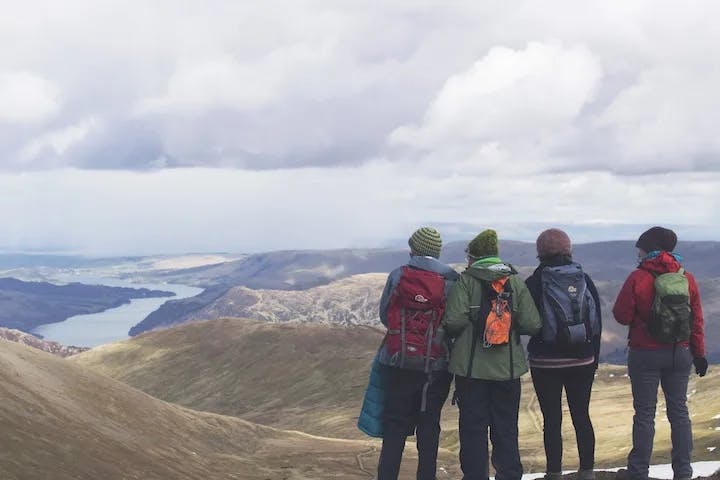A Case for Convening
12. Nov. 2021
The world is both messy and magnificent right now.
Magnificently and messily, we connect in digital space and we travel. Our work, and our communities, stretch far wider than our ancestors could have imagined. The digitization of our systems allows us to organize and rapidly iterate. Indeed, we are entering a new paradigm of work, and by that nature, the leadership it requires.
As we move into this future of work, it feels as if industrial structures demand our inputs and outputs more than value our humanity and our need to just “be.” Instead of allowing us to feel and connect meaningfully with one another, we are more often tasked with laboring in ways that disconnects us and dehumanizes us.
A Need for a Cultural Shift
I believe our world is craving more feeling, more connection, more humanity, and more of a cultural shift away from the structures pitting us against one another. Our current landscape of global climate change and the refugee crisis threatens our humanity, relationships, and time on this planet. The moment is critical. We need this shift now.
Whether we recognize it or not, we have the distinct opportunity to shift these systems and create a new paradigm of existence for ourselves. Joanna Macy calls this time The Great Turning—marking a shift from an “industrial growth society” to a “life-sustaining civilization.” To get there, we need leaders with maturity, competency, self-awareness, and above all, a real sense of connection and belonging.
Deep Connection Comes First
Deep connection relies on more than just a membership network; it requires real convening in a shared space. Focusing on in-person community building and leadership development in in-person cohorts is fundamental to this shift. Biologically, we know that gathering face- to- face releases oxytocin and neurotransmitters that reduce stress and allow us to trust one another. By designing convenings with intentionality and an ethos of distributed power, deep connection evolves through engaging equitably with folks across generations, sectors, nationalities, and a range of identities.
Here is where the togetherness happens: we learn how to be with people different than we are. We learn how to be a good stranger. We learn how to connect in both shared purpose and dissimilar stories. We are confronted with real energy, real voices, real problems, real joys.
Finding Our Connectedness
In turn, trust opens us up to one another. We begin to share deeper versions of our stories with one another. We present challenges and opportunities of our work. Research shows that (paradoxically) it’s only through real vulnerability that we actually experience belonging and the assurance that we are not alone. Meeting one another face-to-face offers a type of solace and resilience unmatched in the digital world.
Being seen, and seeing others, within the threads of the fabric of humanity is what convening creates. This fabric is not woven solely on phone calls, messages, or social media. The fabric we discover in these connections restores us. It’s a protective holding space from the systems against us. Holding this together weaves us together, even when our work and lives may pull us apart.
Building the Future of Work and Leadership
We are living in a distinct moment of time as we step into the future of work and leadership. In this moment, we must remember that, as adrienne maree brown says, “What we pay attention to grows.”
If the future of work and the future of leadership are to move us into The Great Turning, then we need to redirect our attention to being together again. Our attention must focus on convening, growing, and supporting one another.
Most of all, our attention must recreate a culture of connection and belonging. The future of work and leadership necessitates cultivating these elements at every possible moment. Our call must be to create these opportunities or find them otherwise.
The spark of connection, the sense of belonging, and real, in-person interaction is what keeps us resilient. This is what keeps us grounded in grace and open-heartedness. With this grounding, we create the basis of real relationships.This is what gives us hope in all of the magnificence and messiness of the world.
